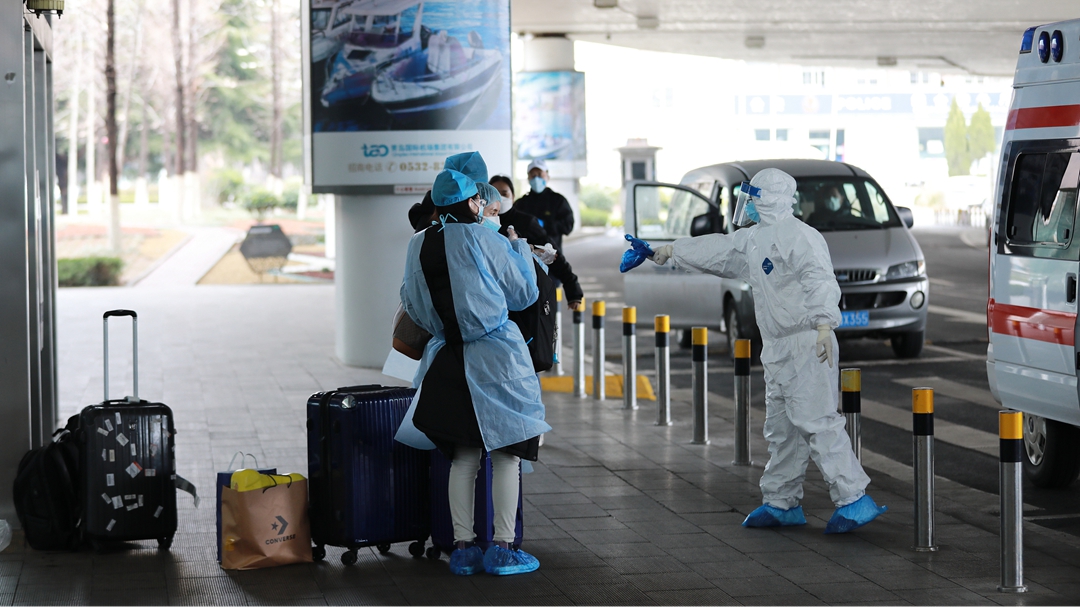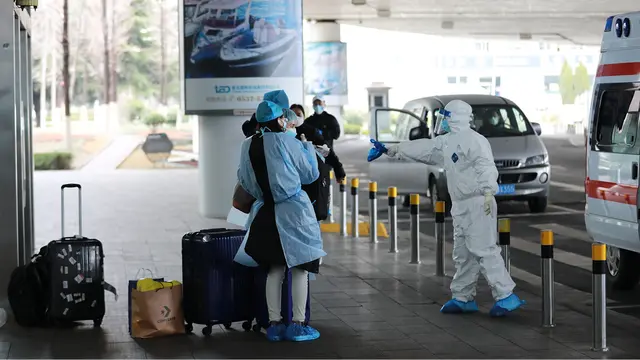
China has tightened testing and quarantine measures for international passengers arriving in the country to help curb the risk of imported COVID-19 cases and protect people's health and safety, foreign ministry spokesman Wang Wenbin said Friday.
At a press briefing, Wang said China is facing increasing risk of imported cases as the pandemic deteriorates in overseas countries. He noted that in October, the country has reported 515 imported cases, an increase of 45 percent from September. Meanwhile, the city of Qingdao and Kashgar have seen resurgence of the epidemic.
Under such circumstances, China has taken stricter preventive measures like other countries, not only to safeguard the hard-earned situation in the county, but also to minimize the risk of cross-infection among international travelers and protect everybody's health and safety, he said.
Among the new rules starting from this week, passengers flying into China are required to present negative results for both nucleic acid and IgM antibody tests taken 48 hours before boarding.
Before that, passengers were only required to show a negative result for a nucleic acid test taken 72 hours before boarding, and have a 14-day quarantine upon arrival.
The new entry requirements were posted on the websites of Chinese embassies in countries reporting surging infections, such as the United States, the United Kingdom, Ireland, Russia, and India.
Asked about the double tests requirement, Wang said it's out of consideration that there is not a single testing method that is 100 percent accurate. According to health authorities, the two tests combined can greatly improve the screening accuracy. Some other countries have also taken similar measures, which showed good effects, he said.
Lu Hongzhou, an infectious disease expert at Shanghai Public Health Clinical Center, said the policy makes sense, as there could be false negatives for the nucleic acid test and that's why IgM test is needed.
Chinese experts have estimated false negative rates on nucleic acid tests to be anywhere from 20 to 50 percent.
In addition, Chinese embassies in Belgium, the UK, the Philippines, India, Ukraine and Bangladesh have announced that China will suspend entry to foreign travelers from these countries holding valid visas or residence permits.
"The noticesissued by the Chinese embassies in the relevant countries havemade it clear that this is a temporary response necessitated by the current situation of COVID-19. Learning from other countries' practices and taking into consideration the evolving epidemic situation, we have adjusted measures concerningpertinent travelers toChina. This is a reasonable and legitimate move consistent with international customary practices, and I believe it will be understood by all," Wang said on Thursday.
"The Chinese embassies in relevant countries will publish timely notices in accordance with the evolving situation. You may keep following up on that," he added.
(Cover: Internatioanl passengers at Qingdao airport waiting for a car to leave. /VCG)
 简体中文
简体中文

